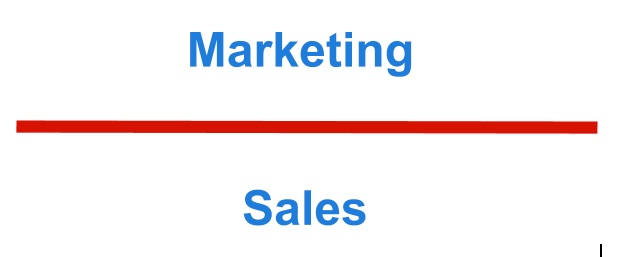
These days in the legal world, you don’t hear the terms “marketing” and “sales” very often. “Marketing” lost its luster during the severe cutbacks in law firms’ marketing communications programs during the recession. Firms lost their appetite for big investments that would take a long time to pay off (at least visibly) because they faced a rapid shrinkage in client demand. Lawyers needed work and cash now. That required an emphasis on Sales.
In-house Marketing departments and outside consultants recognized that and made a massive and rapid shift away from marketing in favor of sales. However, since “sales” was a term that made many firms and  lawyers uncomfortable, we adopted the less-threatening euphemism “business development.” Today, everything is BD.
lawyers uncomfortable, we adopted the less-threatening euphemism “business development.” Today, everything is BD.
Does it really matter if you refer to your client-getting pursuits as “business development,” or “marketing,” or “sales”? Absolutely, and not merely because I’m a language zealot. Undefined terminology (such as “relationship-building”) provides cover for activity-for-its-own-sake, and enables us to delude ourselves that we’re making progress when we’re not.
Here are my definitions of the three terms:
-
Marketing: One-to-many communication that creates awareness of your value and stimulates prospects voluntarily to engage with a sales-decision process
-
Sales: One-to-one direct interaction with the end customer that converts demand by facilitating an informed buying decision
-
Business Development: Working through partners (channels) to sell to the end customer, in a scalable way. (From Andrew DuMont’s blog)
The key distinction is that BD is selling through channels. Business development teams work through existing partner infrastructures. The art of business development comes in identifying partners that fit your needs, while finding a way to provide value to the partner's end customer and business.
Examples of lawyer BD
If you get most of your business through a distribution relationship with a trade association, you’re doing BD. Say you’re providing an incorporation package for startups through an incubator. You made one sale -- the distribution agreement. The incubator is doing all the rest of the selling for you. This is different than referrals, where the source is providing you with leads, but you must still make each individual sale.
If you’ve packaged legal advice with a technology company’s solution, that company is your channel. They’re selling your offering direct to their customer for you. That’s BD.
Successful marketing gives you a willing person to sell to, but you have to make the sale.
You're not doing BD
Most lawyers aren’t doing much, if any, of these types of things. Yet, when we describe our activity as "business development," it makes us feel good that we're, well, developing business. But we're not. We're marketing.
There’s no way around the fact that, if you want more business, you have to sell. Successful marketing gives you a willing person to sell to, but you have to make the sale.
The bright line is the decision.
Unless you’re helping a prospect inform and make a specific decision about a specific offer, you’re not selling, you’re still marketing. It’s only when you progress to the point where the entire focus is on deciding whether or not to buy that you’re selling. Everything else is marketing. If it’s about your products or services, it’s marketing. You may have some overlap, i.e., where you have to do some ongoing solution discussion during the sale, but the important point is recognizing that if you’re not talking about a decision, you’re not selling yet, which means you’re not getting closer to getting business.
The key pipeline-quality indicator is "How many decisions are in process?"
The key pipeline-quality indicator is "How many decisions are in process?" Not how many articles or blog posts you’ve written, or speaking engagements you’ve had. Not how many downloads of your eBook. And not even how many sales calls you’ve had. Until there’s a decision under discussion, it falls under “necessary but not sufficient.”
Focus your efforts on getting more decisions under consideration and, more importantly, where you’re facilitating them rather than sitting on the sidelines awaiting them.
*
[Mike O'Horo is the co-founder of RainmakerVT and has trained 7000 lawyers in firms of all sizes and types, in virtually every practice type. They attribute $1.5 billion in additional business to their collaboration.]